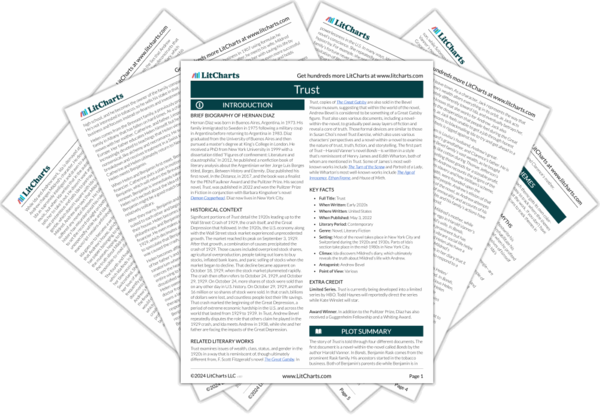Andrew’s treatment of Harold demonstrates Andrew’s power and shows that his power derives from his vast wealth. Andrew’s actions resemble those of Benjamin in
Bonds when he pressured Dr. Frahm into devoting an entire wing of the sanatorium to treat Helen. In both instances, Diaz depicts a world in which one’s wealth determines one’s power. People like Harold, Dr. Frahm, and Ida, who have significantly less money than Andrew, seem powerless when compared to him.
